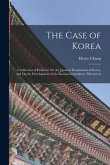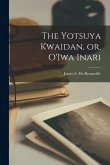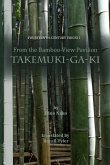Kim Tal-su (1920-1997) was one of the first and leading writers of the Korean Diaspora in 20th-century Japan. The stories in this collection include the critically acclaimed novella "The Trial of Pak Tal" and cover a range of periods and topics like the struggles of Koreans in wartime Japan, the Korean War and its aftermath, and the layers of Japanese and Korean history on the island of Tsushima. Full of the writer's unique blend of humor and pathos, these stories offer a moving and multifaceted look at how Koreans fought to find their voice and identity in Japanese culture and society. Other titles included are Kindred Spirits, All the Way to Tsushima, and One's Place
Hinweis: Dieser Artikel kann nur an eine deutsche Lieferadresse ausgeliefert werden.
Hinweis: Dieser Artikel kann nur an eine deutsche Lieferadresse ausgeliefert werden.








